Pancreatitis can create severe disability and lead to major disorders such as heart and kidney failure. But can you get disability for pancreatitis? What documents do you need to produce and what are the processes involved? Lets find out in the article below.
Contents
Pancreatitis affects the pancreas, which is an organ located in the upper part of your abdomen. Alone in the US, almost 13 to 45 per 100,000 people suffer from acute pancreatitis.
The pancreas is an organ that helps with digestion and produces hormones that help regulate blood sugar levels. Pancreatitis can cause severe pain in your upper abdomen, and it can be challenging to eat or drink anything when you have it.
In some cases, pancreatitis can lead to permanent damage to the pancreas and other organs. So, can you get a disability for pancreatitis? Let’s take a closer look.
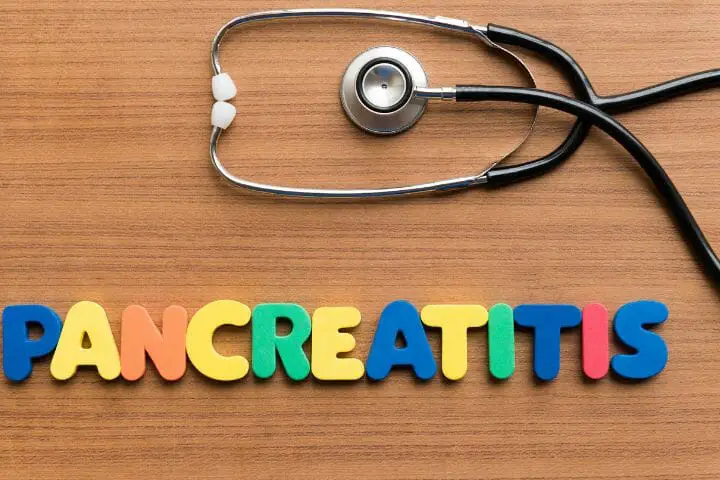
What Is Pancreatitis?
Pancreatitis is a medical condition that occurs when the pancreas becomes inflamed. Pancreatitis can be acute, which comes on suddenly and lasts for a short time, or chronic pancreatitis, which develops over time and can last for months or years.
There are several possible causes of pancreatitis, including:
- Alcohol abuse: Drinking too much alcohol can damage the pancreas and cause inflammation.
- Gallstones: These are hardened deposits of cholesterol that can block the ducts leading from the gallbladder to the pancreas, causing pancreatitis.
- Medications: Certain medications, such as steroids and some blood pressure medications, can increase the risk of pancreatitis.
- Infections: Viral or bacterial infections can sometimes cause pancreatitis.
- Trauma: Pancreatitis can occasionally be due to an injury to the abdomen, such as a car accident.
- Other medical conditions: Some medical diseases, such as cystic fibrosis and hereditary pancreatitis, can increase the risk of developing pancreatitis.
Pancreatitis can be a severe condition that requires hospitalization. Treatment typically focuses on relieving pain and treating any underlying causes.
You might also like to read: Can You Get Disability For Skin Cancer
5 Types of Pancreatitis
There are several different types of pancreatitis, depending on what causes the inflammation.
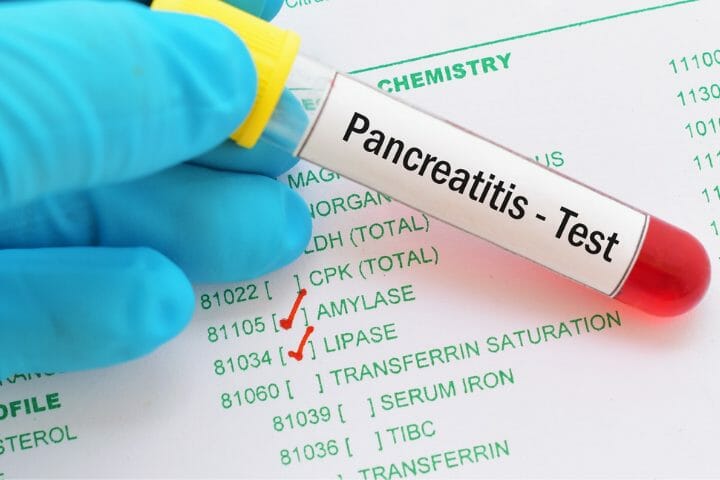
Alcoholic pancreatitis
This pancreatitis is due to excessive alcohol consumption. Alcohol interferes with the production of digestive enzymes by the pancreas, leading to inflammation. Treatment for alcoholic pancreatitis involves abstaining from alcohol and addressing underlying medical conditions.
Traumatic pancreatitis
This pancreatitis is due to an abdomen injury, such as a car accident. Treatment for traumatic pancreatitis involves addressing the underlying injury and supporting the pancreas with digestive enzymes.
Infectious pancreatitis
This pancreatitis is due to an infection, such as a virus or bacteria. Treatment for infectious pancreatitis involves treating the underlying disorder and supporting the pancreas with digestive enzymes.
Autoimmune pancreatitis
This pancreatitis is due to the body’s immune system attacking the pancreas. Treatment for autoimmune pancreatitis involves suppressing the immune system and supporting the pancreas with digestive enzymes.
Idiopathic pancreatitis
This type of pancreatitis has no known cause. Treatment for idiopathic pancreatitis involves supporting the pancreas with digestive enzymes.
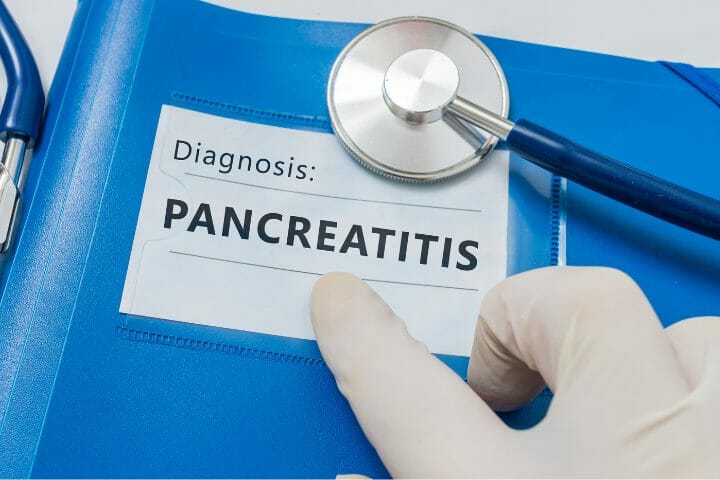
Treatment for Pancreatitis
Acute pancreatitis is a severe and potentially life-threatening condition that requires prompt treatment. Treatment typically involves hospitalization so that the pancreas can rest and heal. In some cases, surgery may be necessary to remove damaged tissue.
The goal of treatment is to relieve pain, correct any underlying problems that may have caused pancreatitis (such as alcohol abuse or gallstones), and prevent complications. Treatment usually starts with aggressive hydration and pain relief.
If the person has a blocked pancreatic duct, an endoscopic retrograde cholangiopancreatography (ERCP) may be performed to open the duct and allow drainage.
In severe cases of pancreatitis, intensive supportive care may be necessary. This may include IV fluids, nutrition support, pain relief, and close monitoring. If the person develops complications such as an infection or bleeding, additional treatment will be necessary.
You might also like to read: Can You Get Disability For Hidradenitis Suppurativa
The Financial Costs Related to Pancreatitis
Medical experts at the National Center for Biotechnology Information say that treating pancreatitis can be very costly. Medical expenditures and demographics of individuals with acute pancreatitis were investigated in a study.
According to the report, hospitalizations with a principal diagnosis of acute pancreatitis cost $2.2 billion in the 2003 Healthcare Cost and Use Project – National Inpatient Sample. At a daily rate of $1,670, that amounted to an average hospital stay cost of $9,870.
More people over 65 and people of color are admitted to the hospital. There is a risk of death from pancreatitis, which may necessitate several hospital stays. When it comes to medicine and doctor appointments, the cost of treating an individual with pancreatitis can range from $10,000 to $50,000 a year.
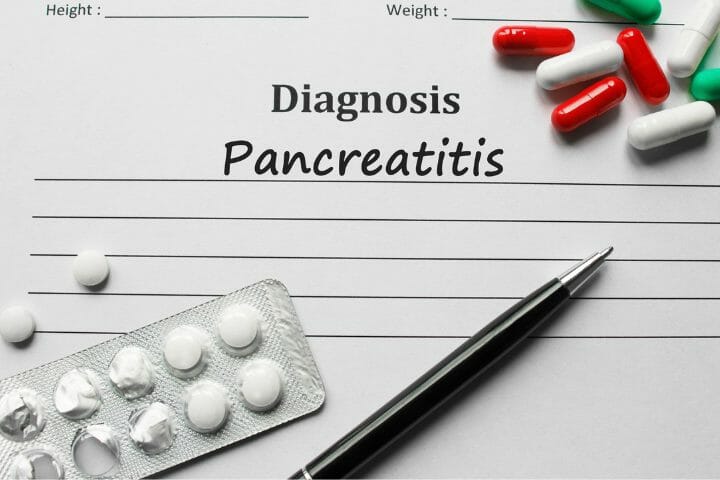
Can I Get SSD or SSI for Pancreatitis?
Pancreatitis can be acute, which comes on suddenly and lasts for a short period, or Chronic Pancreatitis. Acute pancreatitis usually goes away after some days, but chronic pancreatitis can lead to severe complications such as diabetes, kidney failure, and death.
There are two types of benefits that you may be eligible for if you have pancreatitis: Social Security Disability Insurance (SSDI) and Supplemental Security Income (SSI). To qualify for SSI, you must have an income below or equal to $1350 and few resources. To be eligible for SSDI, you must have worked enough years to earn enough credits.
If you have pancreatitis, you will need to provide medical evidence to the Social Security Administration (SSA) to prove that your condition is severe enough to qualify you for benefits.
This evidence can include medical records, test results, and statements from your doctor. The SSA will also consider how your pancreatitis affects your ability to work when deciding on your claim.
Pancreatic Gland Disorders and Social Security Disability
The pancreas is a gland that makes enzymes that help the body break down food. Pancreatic gland disorders can interfere with these enzymes, leading to problems with digestion.
Pancreatic gland disorders can be caused by infections, tumors, or other conditions. They may also be inherited. Symptoms of pancreatic gland disorders can include pain in the abdomen, weight loss, and jaundice (yellowing of the skin).
Some people with pancreatic gland disorders may qualify for Social Security disability benefits. To qualify, you must show that your condition is severe and that it prevents you from working.
A person with pancreatic gland disorder may have diabetes or develop pancreatic cancer in the worst case. If you have diabetes, your case will be evaluated under section 9.00.5, and if it’s cancer, it will be dealt with under section 13.20.
Pancreatic gland disorders can be challenging to diagnose because their symptoms are similar to other conditions. Treatment for pancreatic gland disorders depends on the underlying cause but may include surgery, medication, or lifestyle changes.
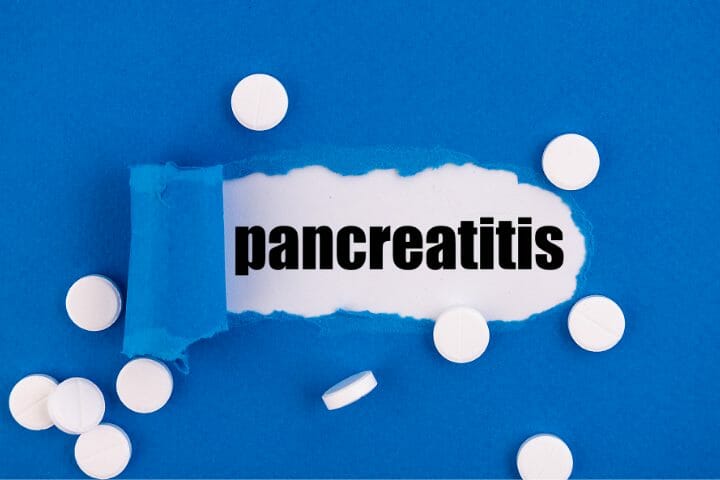
The SSA Evaluation and Medical Qualifications
The SSA maintains a Blue Book that details the requirements for claiming disability benefits under various circumstances. The conditions in the book are organized alphabetically by body system. To be eligible for SSDI benefits, you may need to present additional documentation and evidence because the Blue Book does not explicitly identify pancreatitis.
Painful pancreatitis can induce diarrhea, weight loss, and other symptoms that impair an individual’s ability to work and do everyday activities. If you have lost weight due to a medical condition, you can request that your situation be reviewed.
You might also like to read: Can You Get Disability For Gout
Meeting Disability Criteria with an RFC
Your diagnosis of pancreatitis should be accompanied by a residual functional capacity (RFC) form that provides specific information regarding how your capacity to function has been affected.
The team making the determination will look at your previous employment, the degree of work that it was classified as, and whether or not you have any transferable talents. The RFC is appropriate for various types of labor, including sedentary, light, medium, and heavy work.
Exertional constraints are mentioned in the RFC, such as that you are only allowed to stand or walk for a predetermined amount of time.
Non-exertional limitations, such as frequent bathroom visits due to diarrhea or rest breaks because of fatigue, are also considered when determining whether or not an individual is legally and fully disabled and eligible for benefits. These types of limitations include frequent visits to the bathroom.
Suppose the pain caused by pancreatitis requires medicine that interferes with your ability to concentrate or makes you tired. In that case, this can limit your ability to work jobs that demand fewer skills, or it may even make it unsafe for you to work at all.
The team that makes disability determinations for the Social Security Administration (SSA) will consider your age, transferable work skills, educational level, and symptoms when deciding whether you can work in any capacity, including finding new employment.
You can still receive approval for disability benefits by providing a comprehensive RFC, even if you aren’t qualified for them, by completing the conditions outlined in the Blue Book.
The RFC contains a wide variety of information taken into consideration during the decision-making process to establish whether or not an individual meets the criteria established by the SSA for classifying disabled individuals.

Frequently Asked Questions
1. Is pancreatitis considered a critical illness?
Pancreatitis can be a severe condition and can even be life-threatening. In some cases, it may require hospitalization. While not all cases of pancreatitis are considered “critical,” some can be pretty serious. If you or someone you know has been diagnosed with pancreatitis, it is essential to seek medical attention immediately.
2. Does pancreatitis give you fatigue?
Pancreatitis can cause fatigue for several reasons. First, the inflammation associated with pancreatitis can lead to pain and discomfort, making it difficult to get a good night’s sleep. Additionally, the pancreas is responsible for producing enzymes that help to break down food in the digestive process.
3. What are the warning signs of pancreatitis?
Pancreatitis is a severe condition that can be life-threatening. If you think you may have pancreatitis, it is essential to see a doctor. Some of the warning signs of pancreatitis include:
Abdominal pain that radiates to your back
Nausea and vomiting
Fever
Rapid pulse
Excessive sweating
Yellowing of the skin and whites of the eyes (jaundice)
Weight loss
Fatigue
Wrap Up
Pancreatitis is a severe disease that can seriously inhibit your abiltiy to pursue gainful work. Therefore, we suggest that you should get a disability filing done as soon as you get a diagnosis for this disease. Since many claims may take anywhere between 3 months to 2 years, the quicker you act, the better your chances are of getting the benefits early.
Thank you for reading the article, we hope we have covered everything that was of key interest. If you have further doubts, please reach out to us.
